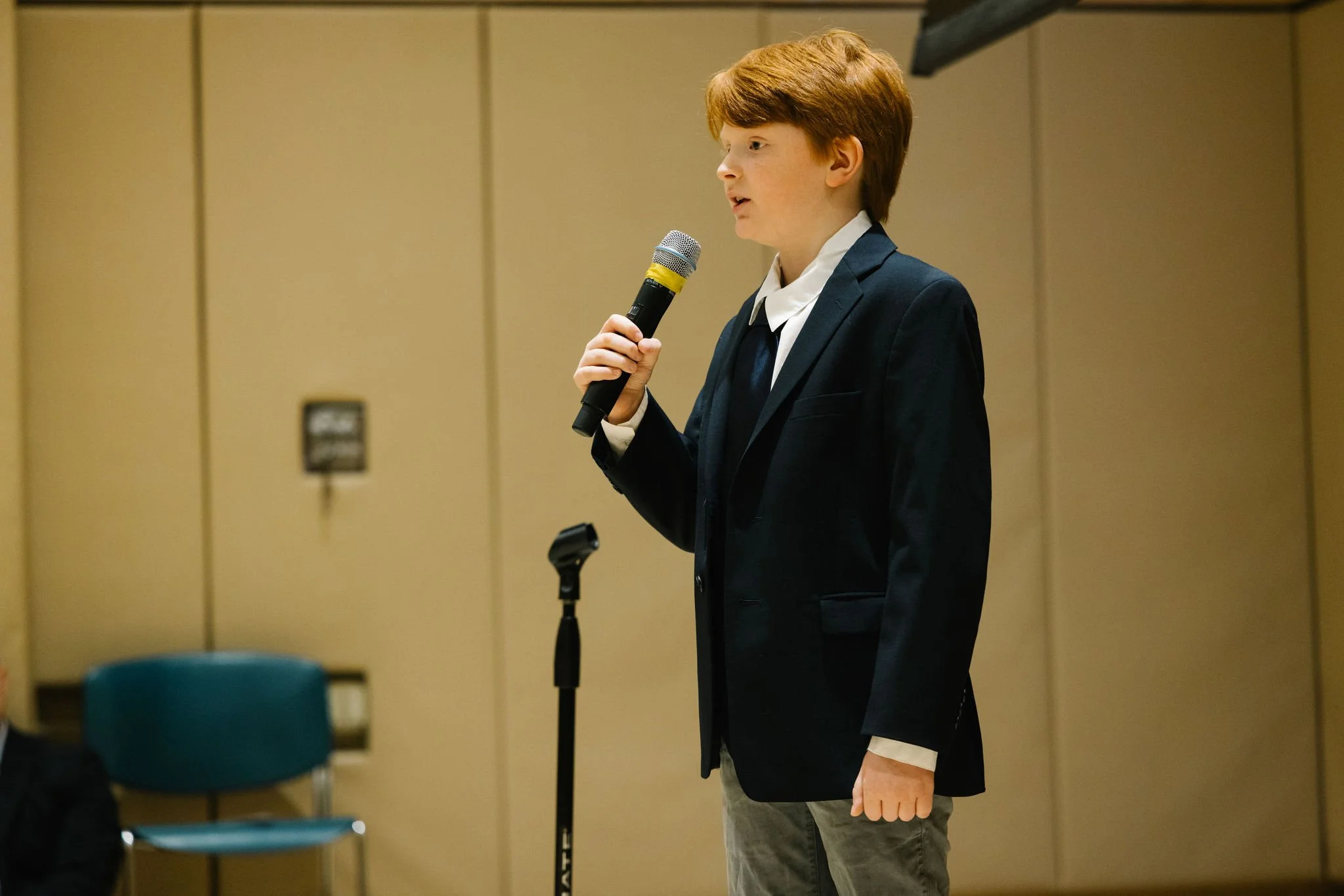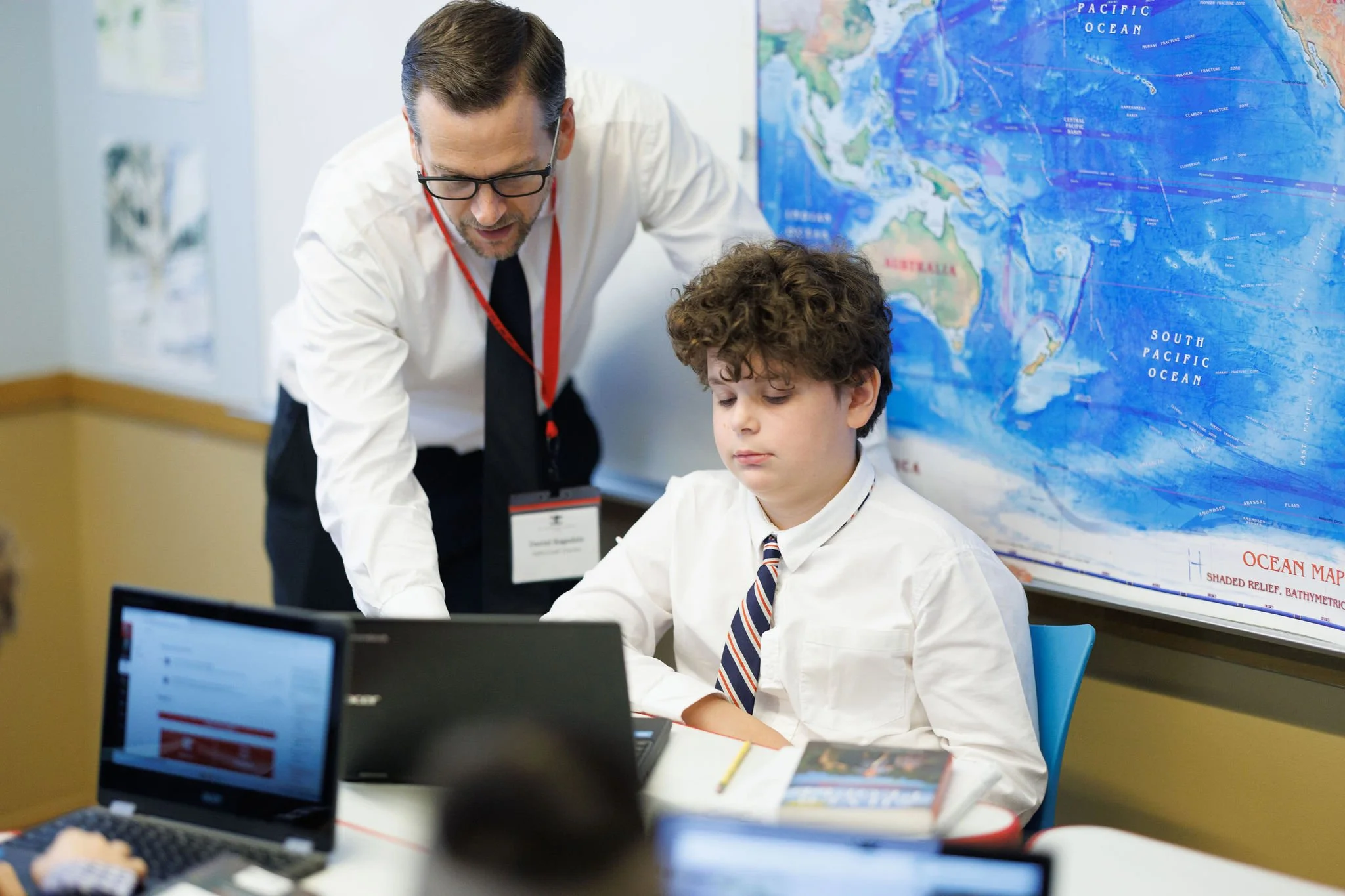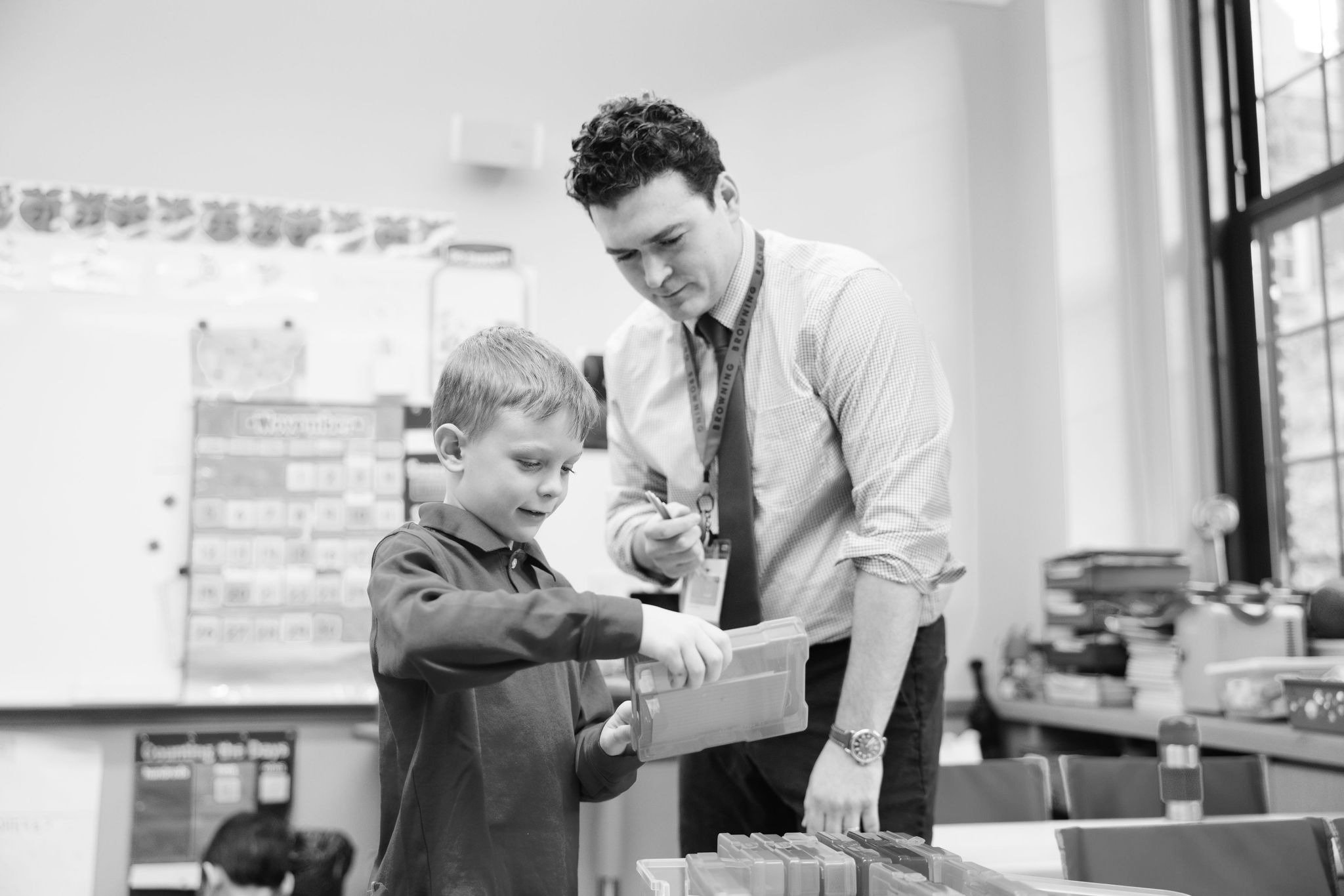Kindergarten
The Kindergarten program focuses on beginning reading and writing skills, enhancing communication skills, and reading comprehension strategies through daily read-alouds, introductory writing lessons, and small reading groups. A multi-dimensional curriculum of phonics activities, sight word vocabulary, and handwriting development is supported by The Wilson Fundations program and leveled classroom libraries.
KinderFirst
In Kinderfirst, students build their reading and early writing skills at an accelerated pace through the Wilson’s Fundations program and by participating in small group literacy instruction several times each week. KinderFirst students are exposed to increasingly complex word and spelling patterns as they delve into a variety of both fiction and nonfiction texts. Through explicit instruction of phonics, handwriting, and spelling, boys build both their vocabularies and automatic recall of sight words. Reading instruction also includes direct instruction and practice with a variety of decoding and comprehension strategies to solidify students’ understanding of text. In the second half of the year, Kinderfirst boys work to build their writing stamina and skills through daily journal entries and more advanced writing projects such as how-to books and personal narratives.
Grade 1
In first grade, reading is structured to include a wide variety of fiction and nonfiction texts, which students explore during daily small group literacy instruction, as well as independent reading time. Boys are exposed to a wide variety of literature, including stories, poetry, and informational texts, with an intentional focus on Browning’s core values. Students learn to use syntactic and contextual clues to develop both oral fluency and accurate comprehension. Explicit spelling patterns, phonics, handwriting, capitalization, and punctuation are taught using Wilson Fundations, further enhanced with various multi-sensory activities. Personal narratives and daily journals provide creative writing opportunities, as students develop into emergent writers with enhanced content, grammar, and spelling skills.
Grade 2
In second grade, students explore a wide variety of theme-related books and current authors to promote a love of reading. Comprehensive exercises and small group discussions foster critical thinking and develop students’ ability to make inferences and draw conclusions, deepening their overall comprehension skills. Studying authors’ styles, comparing fantasy and reality, and using reference books for research build skills in creative and expository writing. Students engage in small group reading instruction daily in leveled groups. The Wilson Fundations Program progresses further into the study of word structure, reinforcing phonemic awareness, spelling patterns and sight words, irregular spellings, prefixes, and suffixes. Grammar, sentence structure, and parts of speech are reinforced through written and oral exercises. Writing units include creative story writing, narrative writing, persuasive writing, and informational report writing. Grade 2 students learn to brainstorm, organize, edit, and publish their writing.
Grade 3
Grade 3 students increase vocabulary, develop higher thinking skills, and move toward greater fluency and understanding of oral and written language while continuing to develop their love of reading through various literary forms. Creativity, self-motivation, and independence in all areas of reading and writing are emphasized. Students learn the structure and parts of a story or text, and how to read and write non-fiction text. Third-grade boys learn to construct an expository essay, craft fictional narratives based on an author-study, and use writing to communicate their ideas with increased clarity and detail. More advanced spelling, punctuation, capitalization, grammar, and sentence structure techniques continue to be studied. Writing projects throughout the year allow students to draft, revise, and edit their work.
Grade 4
Grade 4 boys read a variety of texts across multiple genres that reflect Browning’s values, particularly the value of dignity. Selected works highlight a range of perspectives and life experiences, helping students strengthen comprehension skills while developing empathy and critical thinking. As writers, students explore expository, persuasive, creative, and personal narratives, applying techniques such as figurative language and focusing upon vocabulary building. Students develop a keen sense of spelling, grammar, punctuation, and paragraph development, as well as note taking techniques, as they research and prepare multimedia presentations about the lives of individuals who exemplify our Browning values.
Grade 5
The Grade 5 literacy curriculum introduces students to narratives set in a variety of historical periods and settings. Offering a range of perspectives on major events from the 20th century, novels contextualize an integrated humanities program in which each setting and period inspires inquiry through a historical lens. Students use close reading strategies, including inferring, questioning, visualizing, and predicting to build comprehension skills with more complex texts. Each student creates a record of his thinking (wonderings, questions, feelings, and conclusions) about each novel through annotation and reflection. Students engage in daily writing practice to develop vocabulary and build grammatical fluency. Writing instruction focuses on increasingly sophisticated sentence and paragraph composition, often based on prompts from the class novels. From simple and complex sentences to single- and multi-paragraph assignments, the boys develop a strong foundation in expository and creative writing.
Assessment
Each boy’s reading level is formally assessed several times each year in Kindergarten through Grade 2. In Grades 3-5 the boys take a standardized assessment to measure literacy and mathematics skills, and the results are used for program planning. Scores are shared with parents and teachers.

























